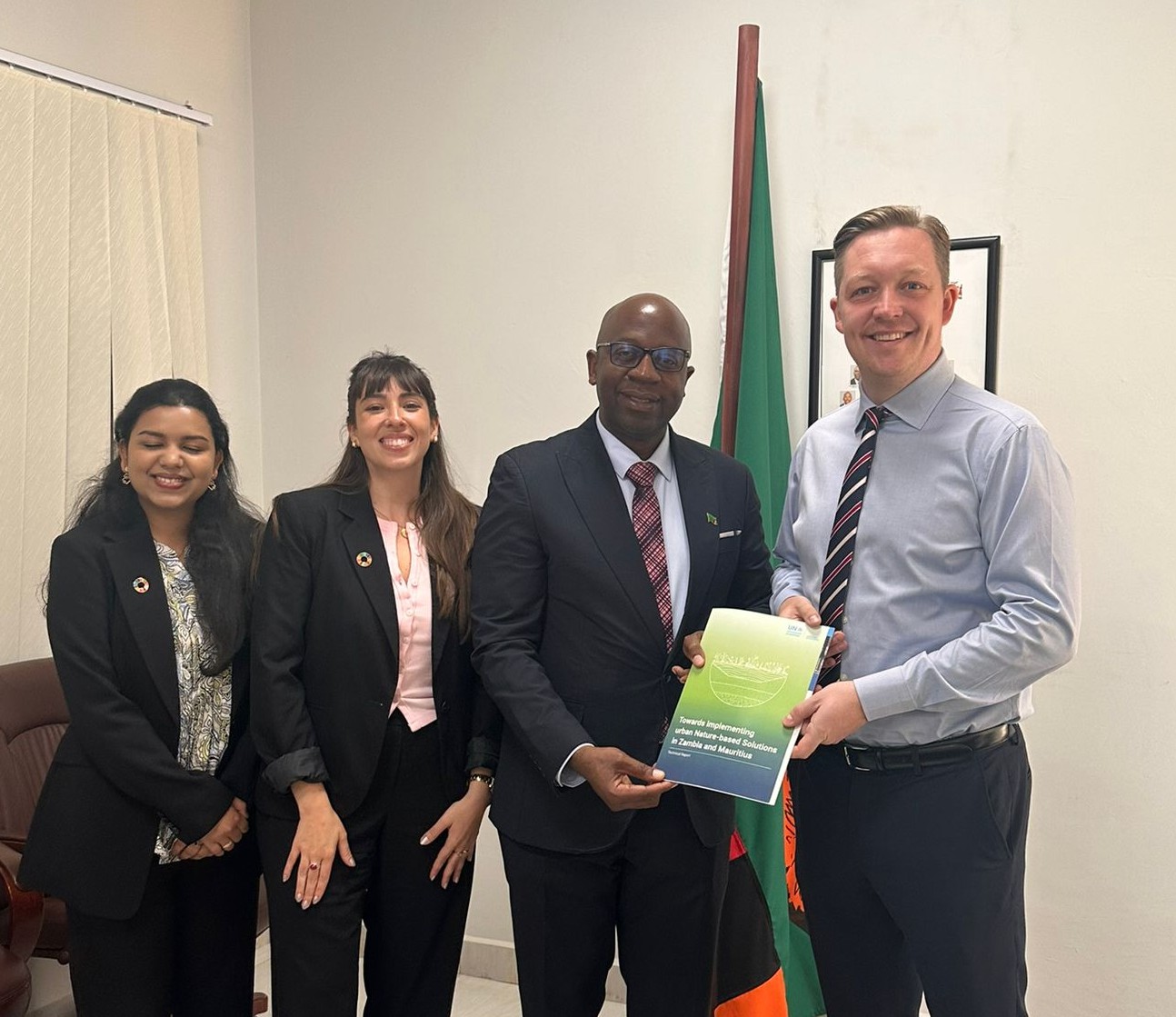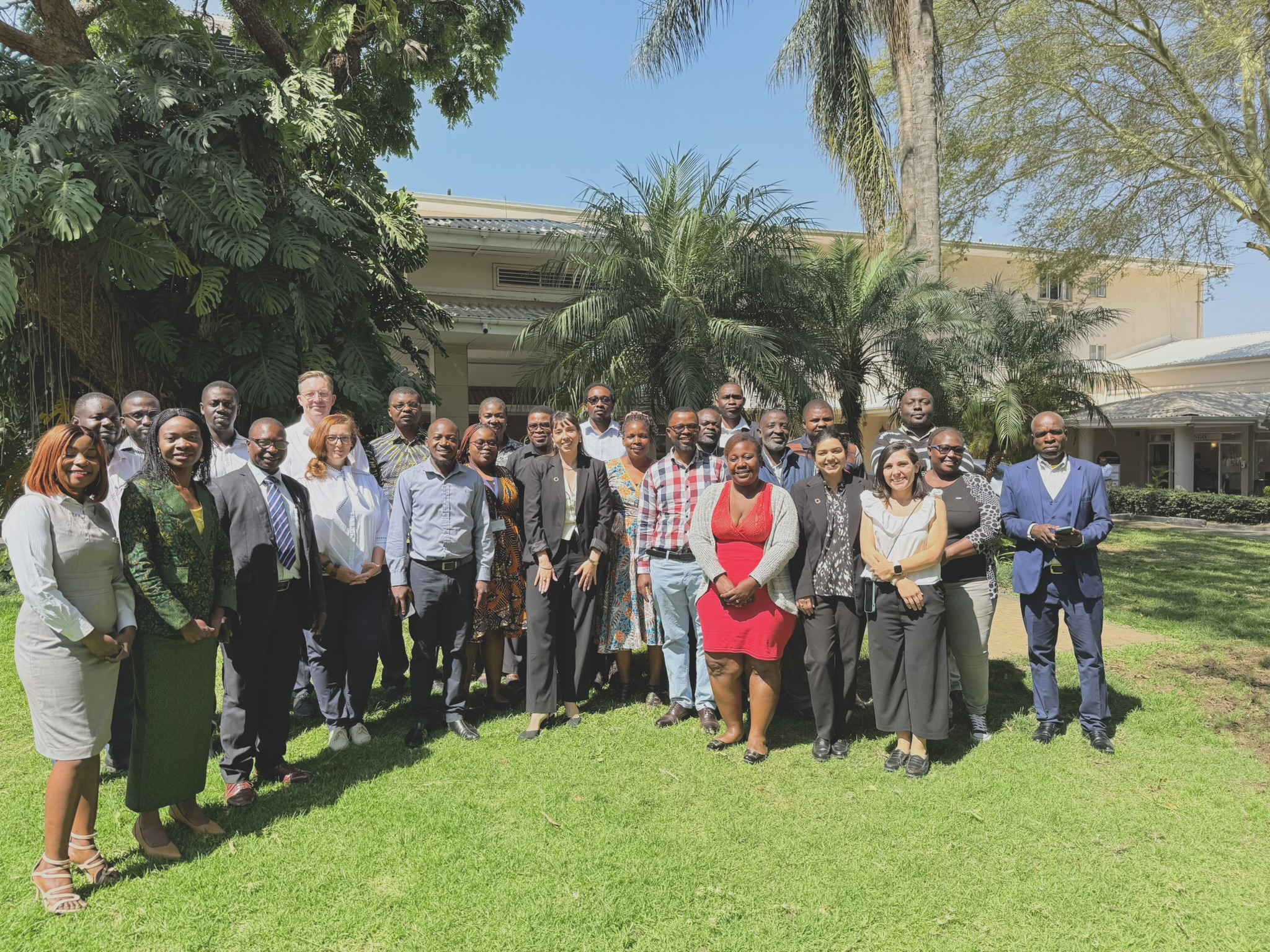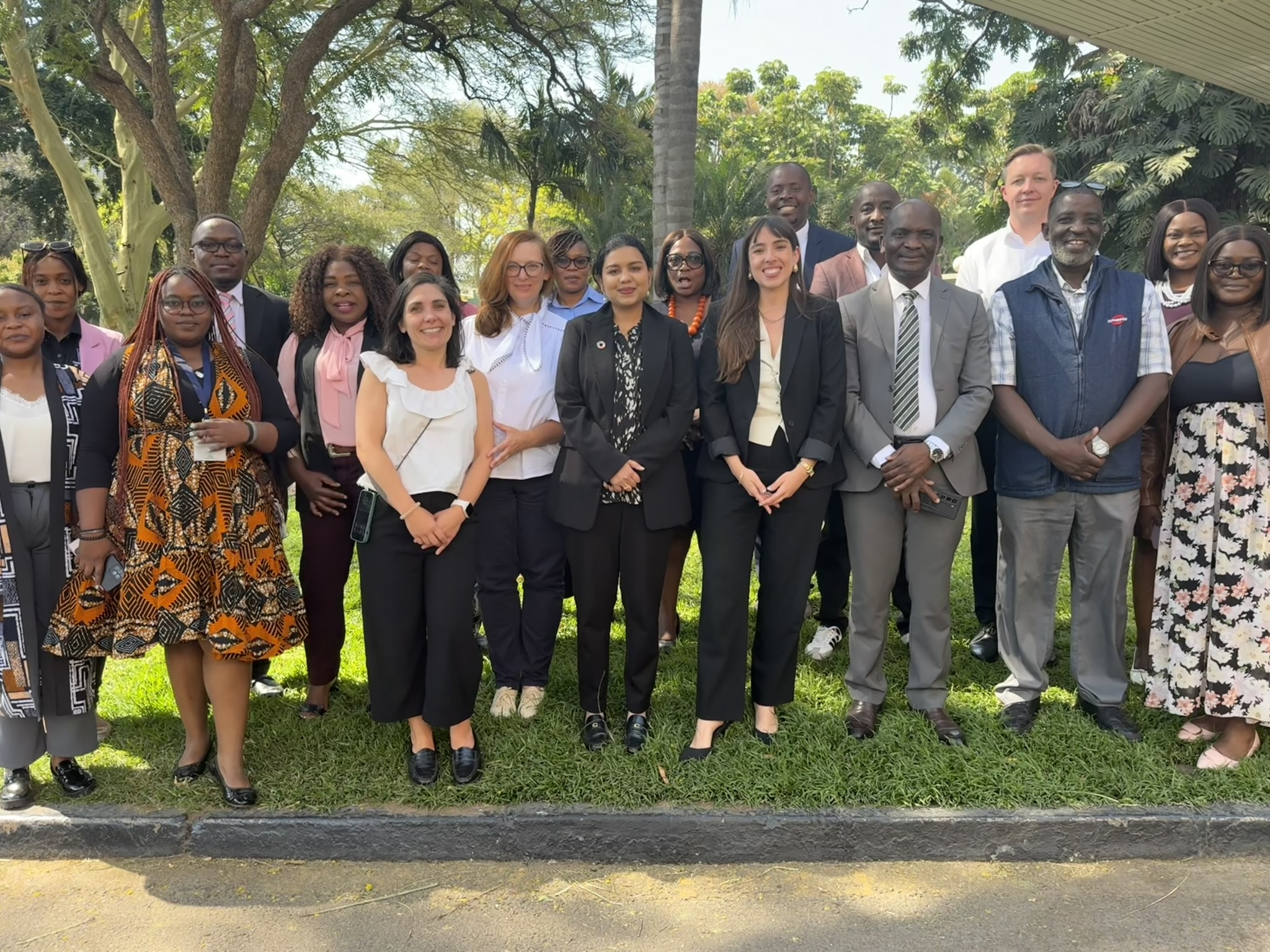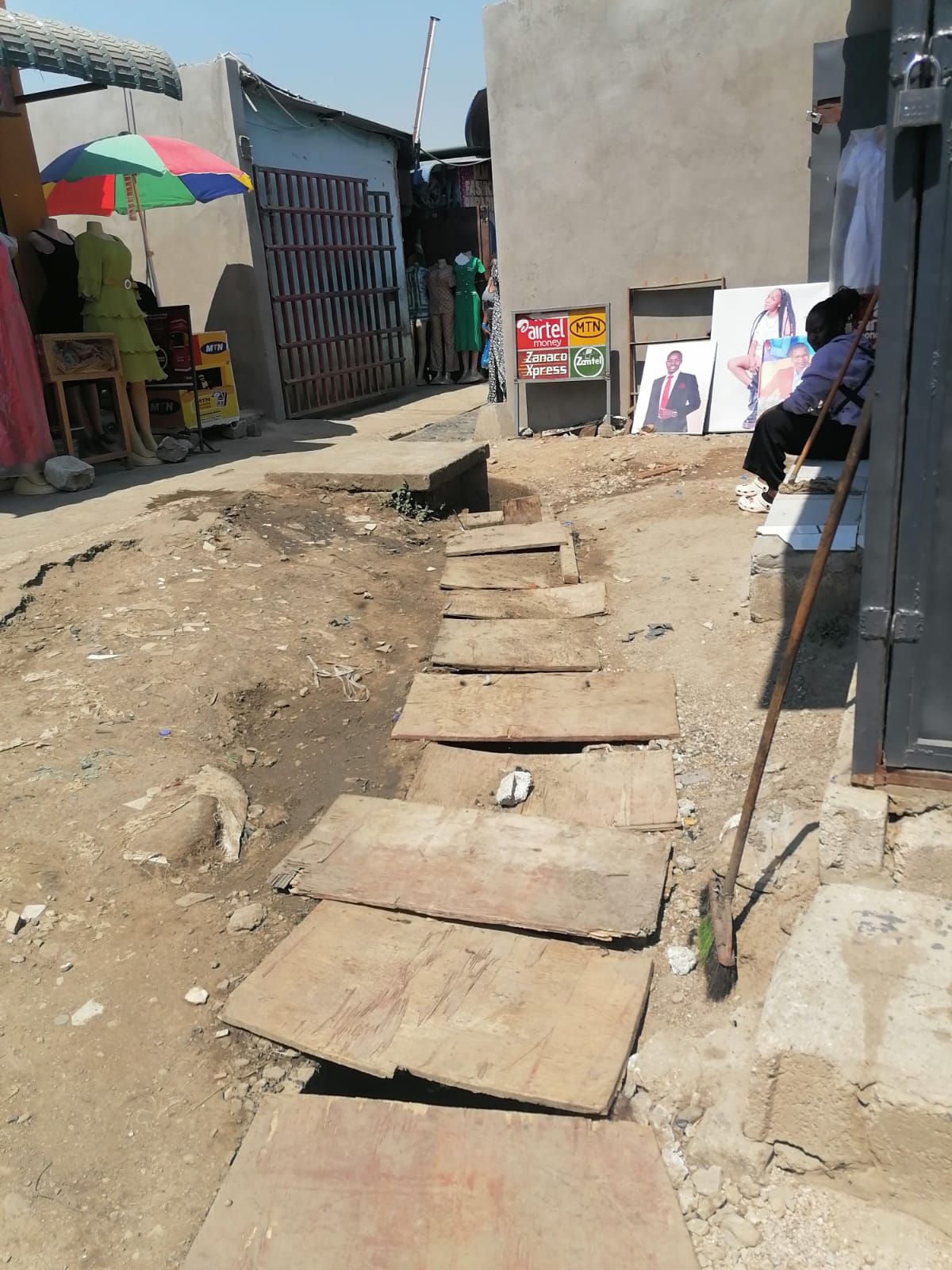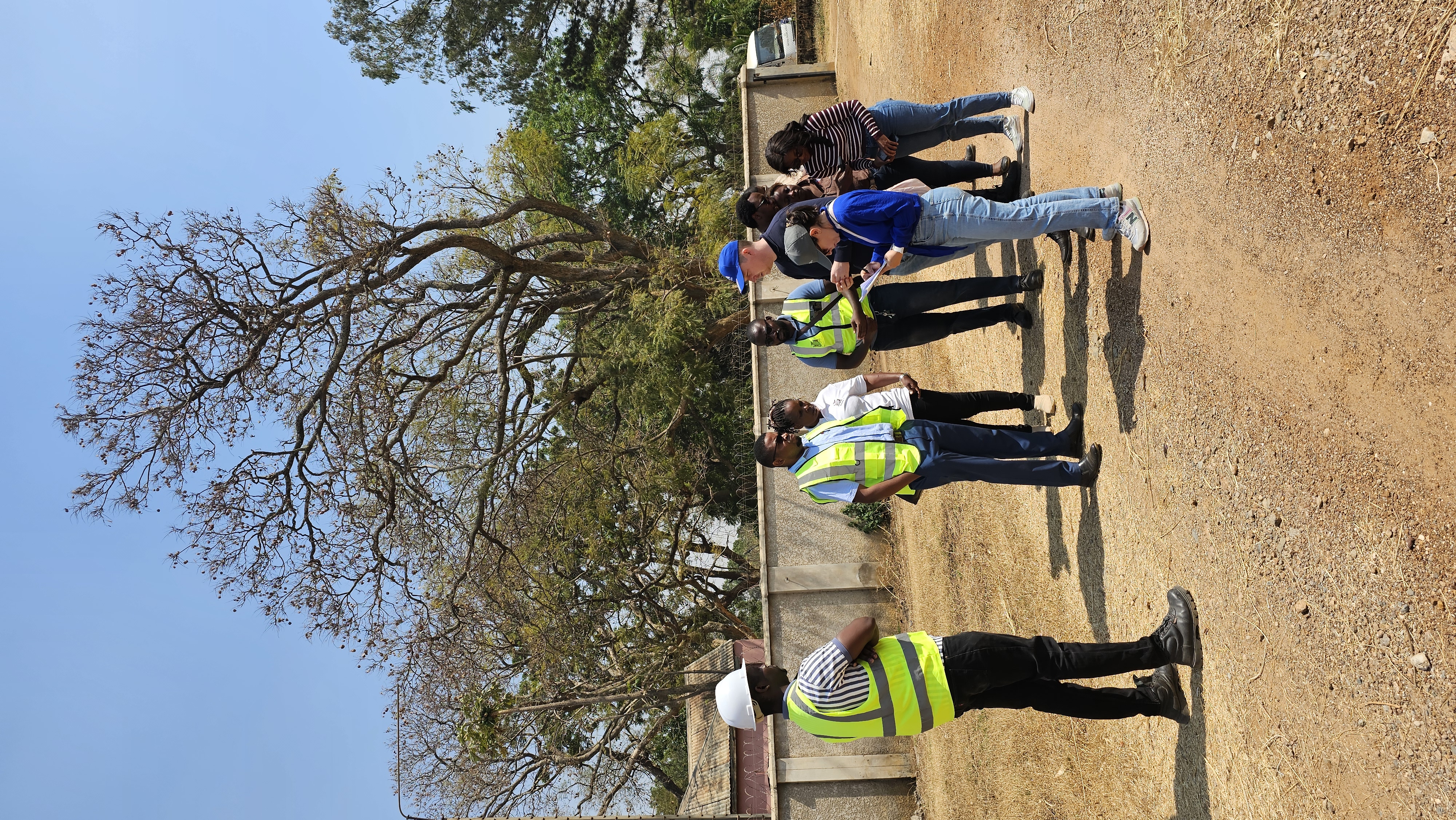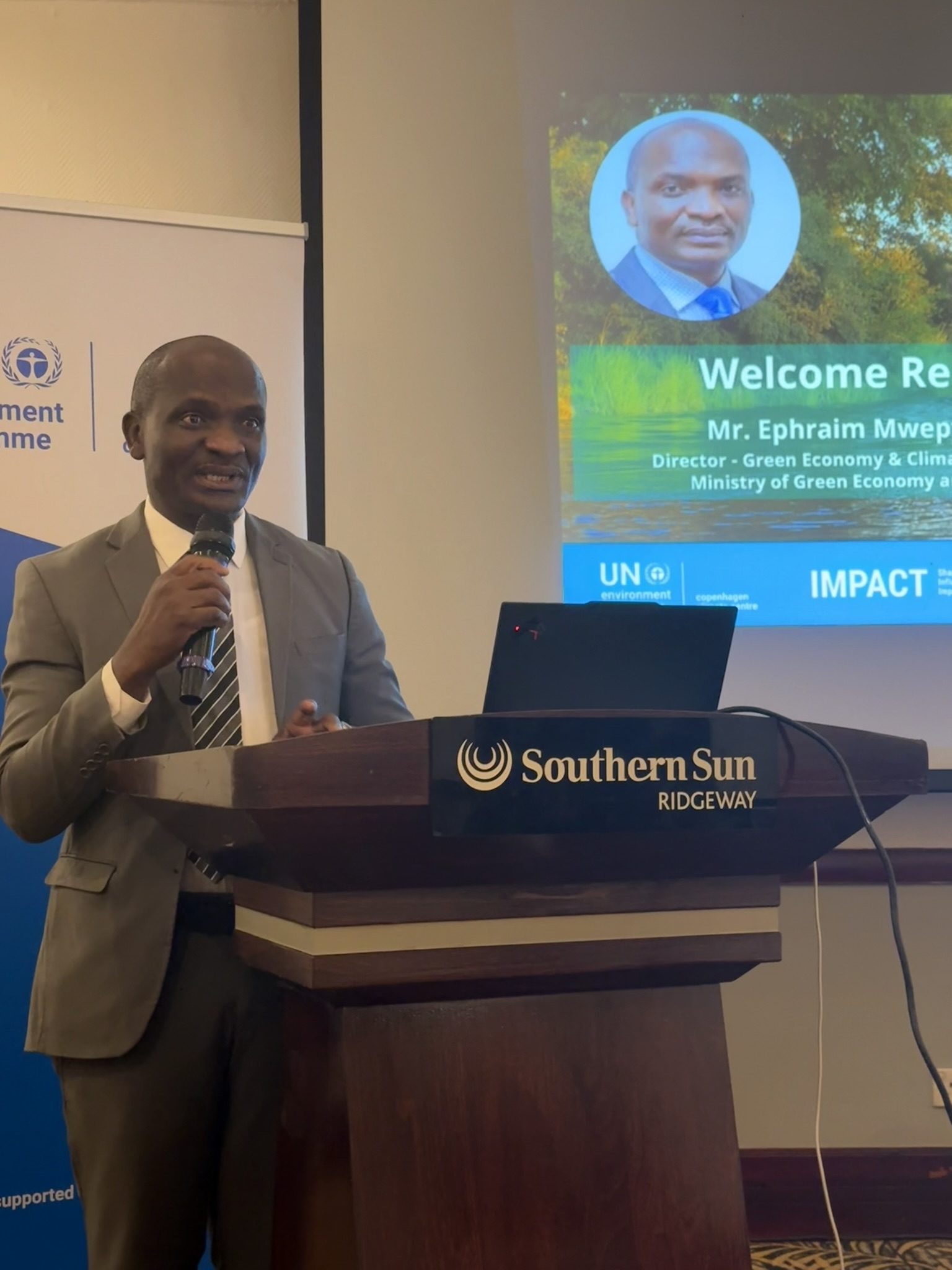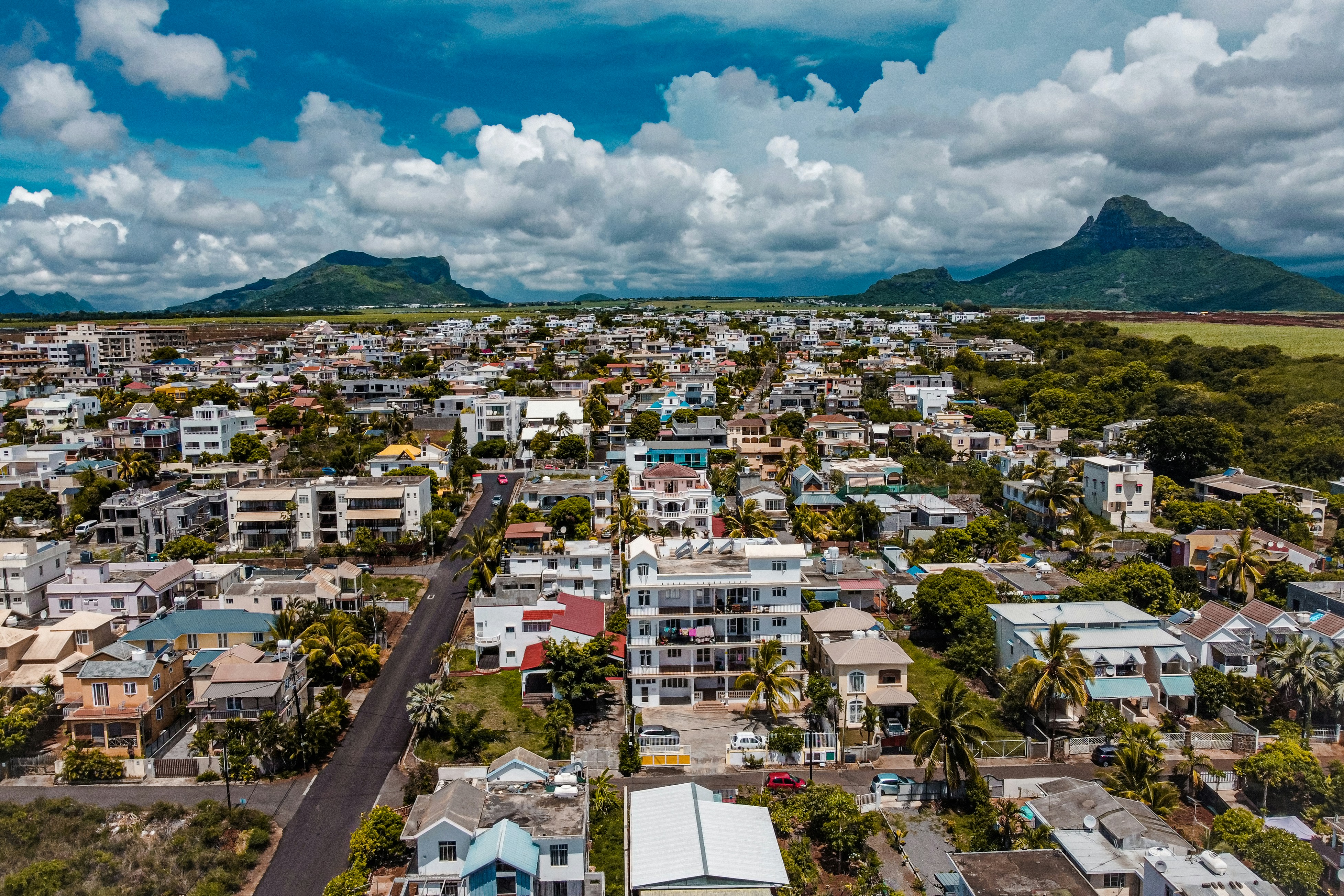Zambia is one of the most climate-vulnerable countries in the world. Its urban and peri-urban communities are increasingly exposed to alternating cycles of drought and flooding, which exacerbate economic and non-economic losses and damages.
As part of UNEP Copenhagen Climate Centre’s work funded by the Ministry of Foreign Affairs of Denmark (Danida), a team of experts recently completed a country visit to Zambia, advancing two key climate resilience initiatives: One focused on Loss and Damage, and the other on urban Nature-based Solutions. The visit included meetings with high-level government officials, local stakeholders, and community representatives, as well as site visits to areas most affected by climate extremes.
Addressing Urban Loss and Damage
The work on climate induced loss and damage combines a retrospective analysis of past climate events with forward-looking assessments, aiming to improve both emergency response and long-term prevention strategies.
Importantly, the project goes beyond economic losses and also addresses non-economic losses and damages-such as the loss of human life, losses of human health, cultural heritage, and biodiversity-which are especially relevant in the Zambian context.
During the in-country visit key loss and damage hotspots in Lusaka were visited to assess the impacts and engage with national and civil society stakeholders.
The UNEP Copenhagen Climate Centre also hosted a consultation workshop, supported by the Ministry of Green Economy and Environment, bringing together representatives from the Ministry of Infrastructure, Housing and Urban Development – Disaster management and mitigation unit, The Ministry of Finance, Ministry of Education, Ministry of Health, and the Ministry of Tourism.
Together, they helped identify a second city for development of a pilot project, where new tools will be developed to monitor and report both economic and non-economic losses and damages.
Scaling Up Urban Nature-Based Solutions
In parallel, the UNEP Copenhagen Climate Centre is working with Zambian partners to develop urban Nature-based Solutions that help communities adapt to climate extremes.
Lusaka faces a dangerous mix of climate extremes, with rising temperatures and urban heat island effects compounded by droughts and increasingly erratic rainfall patterns that trigger frequent flooding and flash floods.
Together with the Ministry of Infrastructure, Housing and Urban Development, and joined by experts from the Lusaka City Council, the Disaster management and mitigation unit and the Ministry of Green Economy and Environment, the team visited flood-prone and heat-affected areas in Lusaka, guided by local community representatives (e.g., from the Ministry of Community Development and Social Services) who shared firsthand experiences of extreme rainfall, drought, and heat.
During the mission a policy brief, Towards Implementing Nature-Based Solutions in Zambia, was officially handed over to the Permanent Secretaries Dr. Douty Chibamba and Prof. Albert Malama, along with a the detailed technical report on urban Nature-based Solutions.
The policy brief outlines how urban green infrastructure-such as bio-retention basins, permeable pavements, and restored green spaces-can help cities like Lusaka manage climate extremes including flash floods, droughts, and urban heat. It also provides actionable recommendations for integrating nature-based solutions into urban planning in Zambia.
The mission also included the fifth meeting of the 5th Technical Working Group on urban Nature-based Solutions, a group of experts established by Ministry of Infrastructure, Housing and Urban Development and UNEP Copenhagen Climate Centre. This group is helping shape policy recommendations and guide the design of projects piloting urban Nature-based Solutions.
Institutional support for Nature-based Solutions and Loss and Damage was voiced by Permanent Secretaries, who expressed interest in using the project’s policy recommendations to scale up interventions.
Shared Goals and Next Steps
While the urban loss and damage and urban nature-based solutions projects have distinct objectives, they share a common goal: building urban resilience in the face of climate change. Both focus on addressing the impacts of floods and droughts, and both emphasize the importance of local perspectives and inclusive planning.
Next steps for the projects include finalizing pilot sites in Lusaka, developing implementation plans, and continuing stakeholder engagement to ensure that both strategies can lead to tangible, on-the-ground impact.
